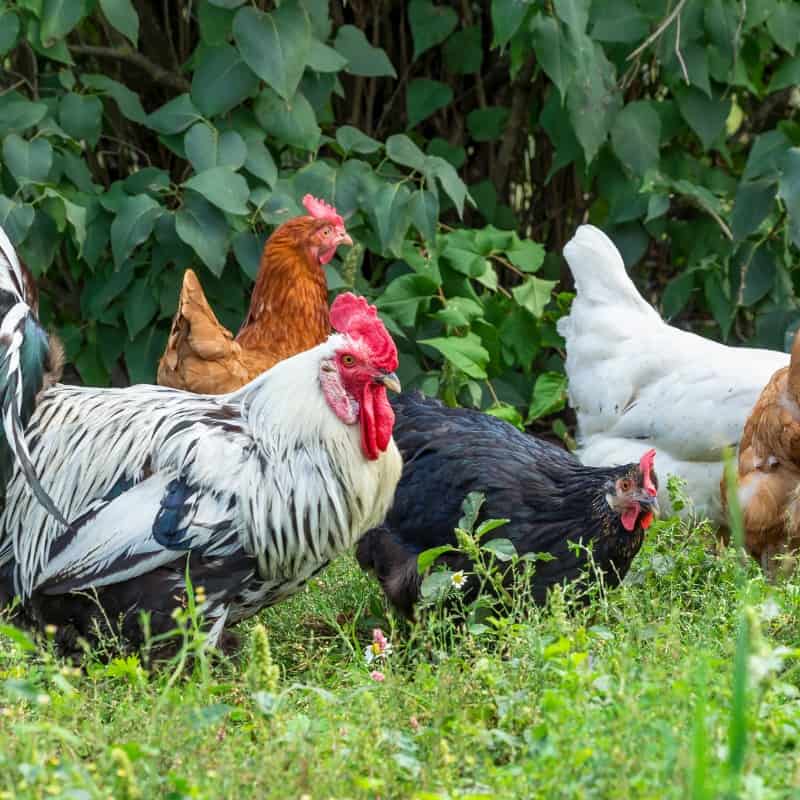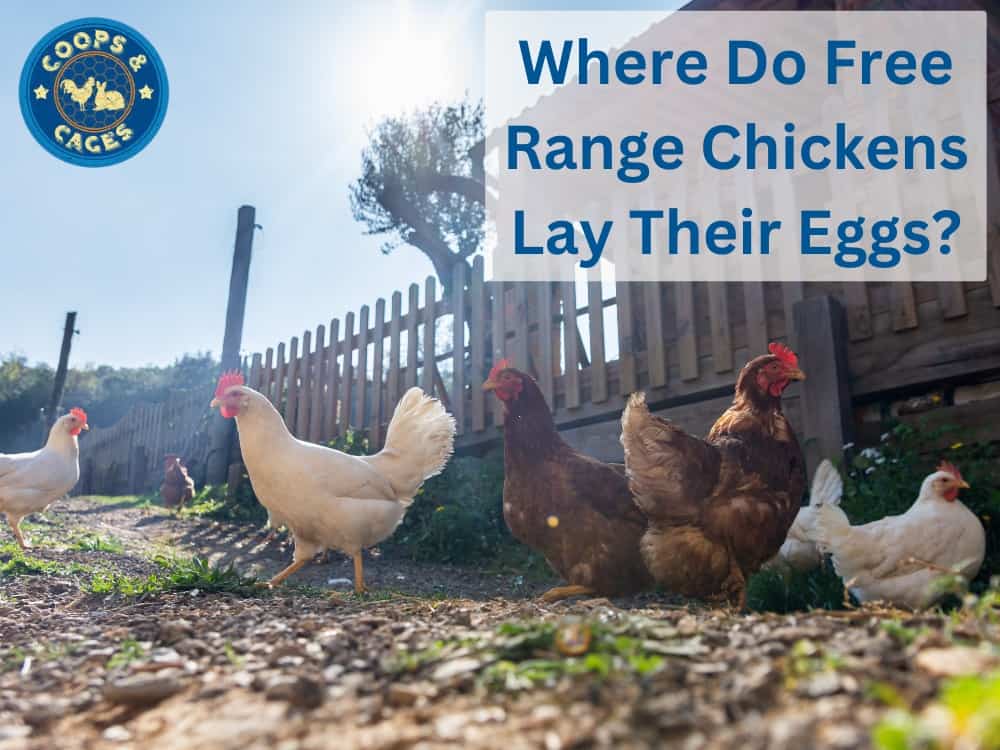Chickens, Interesting
Where Do Free Range Chickens Lay Their Eggs?
Ever been mystified by the hidden world of our feathery mates – and wondered ‘Where do free range chickens lay their eggs?
Well, it’s a bit like playing hide and seek when they lay their eggs. One day you’ll find an egg in the nest box; another day it might be under a bush!
So where do these cheeky chooks prefer to drop their golden goodies? And how does this impact us – those who relish fresh, healthy eggs for brekkie?
In this adventure together, we’re about to crack open some intriguing insights about free range hens’ laying habits. We’ll delve into identifying ideal environments for them, collecting and storing their eggs safely.
So let’s dive in, and find out where do free range chickens lay their eggs!
What Are Free Range Chickens?
Free-range chickens are domesticated chickens, that are allowed to roam freely outdoors and have access to open spaces, rather than being confined to cages or small enclosures.
Free-range poultry farming is based on the idea of providing chickens with higher welfare due to a more natural and humane environment compared to conventional factory farming practices such as battery cage hens.
Specific regulations and definitions of “free-range” can vary by country and certification standards. Different regions may have different requirements regarding the amount of outdoor space provided, the duration of outdoor access, and other factors.
Where Do Free Range Chickens Lay Their Eggs?
If you’re new to raising free range backyard chickens, one question might be clucking in your mind: where do these hens lay their eggs?
Unfortunately, the answer is not always so clear-cut. You see, unlike their coop-confined counterparts, free range chooks have a bit more liberty when it comes to choosing an egg laying spot.
Typically, chickens prefer quiet and secluded places for laying eggs. This behaviour is rooted in their wild ancestors who needed to hide nests from predators, that’s why your hens may choose unexpected spots.
Some common areas your free range hens may lay include:
Nesting Boxes
Many free-range chicken owners provide nest boxes within a shelter, coop, or the free-range vicinity to encourage hens to lay their eggs in a controlled and clean environment. These provide a secure and comfy space that appeals to the natural instincts of your birds.
Under Shrubs & Bushes
Search beneath shrubs, bushes, or tall grass in the outdoor area. Free-range chickens often lay eggs in hidden spots with some natural cover as it provides them with a sense of privacy and security.
Dust Bathing Areas
Some hens lay eggs in their dust bath areas. These spots are typically dry and comfortable for the hens.
Buckets, Crates, or Boxes
Inspect any old buckets, crates, or boxes in the outdoor area, as chickens sometimes lay eggs in these unconventional spots where they feel safe and secure.
Beneath Decks or Structures
Chickens may lay eggs beneath decks, sheds, or other structures in the outdoor area if they can access these private places.

Benefits of Free Range Eggs
Free-range eggs offer several potential benefits compared to eggs from conventionally raised chickens. Here are some of the advantages of free-range eggs:
Improved Animal Welfare
Free-range hens typically have better living conditions, with access to the outdoors, natural behaviours, and more space to move around, which can lead to happier and healthier chickens.
Higher nutrients
Free range eggs have been found to contain more Omega-3 fatty acids and Vitamin E than those laid in cages, providing us with a healthier option that also tastes better. These eggs may also contain elevated levels of specific nutrients, such as vitamin D, thanks to the diversified diets of the chickens, which include foraging for insects and plants.
Enhanced Flavour
Apart from being nutrient-rich, these eggs also boast a superior taste. Many consumers find free range hens produce eggs with a richer flavour and more vibrant, golden yolks, which can enhance the taste of dishes and baked goods.
Higher Quality Eggs
Many consumers find that eggs produced by free range chickens not only have a better taste and more vibrant yolks, but they may also have a better texture, making them a preferred choice for cooking and baking.
Fresh Egg Storage Solutions
Storing free range eggs right is crucial to keeping them fresh and safe. The key is temperature control. Eggs should be stored in a cool place, ideally below 20 degrees Celsius.
One common myth we need to bust: don’t wash your fresh eggs as soon as you collect them. Washing can remove the protective “bloom” layer that keeps bacteria out of the eggshell pores. Instead, clean off any visible dirt with a dry cloth or paper towel.
A nifty trick I use at home for storage? An egg carton. Not only does it keep my chook’s gifts organised, but also stops them rolling around.
FAQs in Relation to Where Do Free Range Chickens Lay Their Eggs
How Do I Make Sure My Free-range Chickens Lay Eggs In The Coop?
To encourage your chooks to lay in the coop, give them comfy nesting boxes. Dim light and privacy help too.
Will Chickens Lay Eggs Anywhere?
Chickens can drop an egg just about anywhere but prefer quiet spots with some cover.
Do Free Range Chickens Lay Eggs?
Absolutely. Free-range hens will gladly pop out their fresh, nutrient-rich goodies given a good diet and environment.
Do Free Range Chickens Use Nesting Boxes?
You bet. Given a choice, your backyard layers would rather nestle into cosy boxes for their daily laying ritual.
Jordan’s Wrap
Well, there you have it! We’ve cracked the mystery of where do free range chickens lay their eggs. They’re not picky; a cosy coop or a hidden spot under a bush works fine.
We discovered that these golden goodies offer more than just delicious brekkie material. The nutritional value is higher in comparison to other types!
Don’t forget our handy collection tips and storage solutions either – they’ll keep your chook’s gifts fresh and ready for consumption.
Understanding egg-laying habits reminds us of the importance of treating animals with care and respect.
By supporting farms that prioritize their well-being, or allowing our backyard chickens time to free range, we can enjoy eggs that reflect this kindness and a more sustainable food system.



